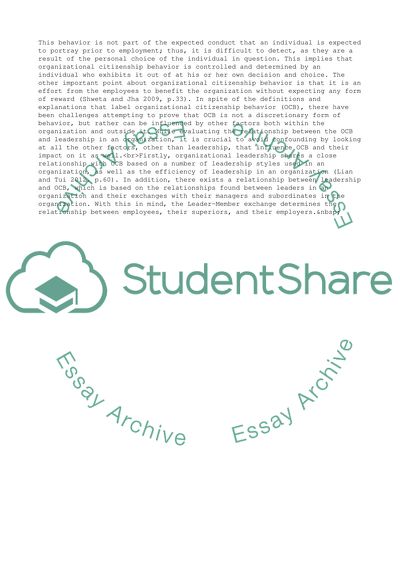Cite this document
(Leadership and Organizational Citizenship Behavior Essay - 1, n.d.)
Leadership and Organizational Citizenship Behavior Essay - 1. Retrieved from https://studentshare.org/business/1788434-drawing-on-a-range-of-scholarly-articles-critically-examine-the-relation-between-leadership-and-organizational-citizenship-behaviour
Leadership and Organizational Citizenship Behavior Essay - 1. Retrieved from https://studentshare.org/business/1788434-drawing-on-a-range-of-scholarly-articles-critically-examine-the-relation-between-leadership-and-organizational-citizenship-behaviour
(Leadership and Organizational Citizenship Behavior Essay - 1)
Leadership and Organizational Citizenship Behavior Essay - 1. https://studentshare.org/business/1788434-drawing-on-a-range-of-scholarly-articles-critically-examine-the-relation-between-leadership-and-organizational-citizenship-behaviour.
Leadership and Organizational Citizenship Behavior Essay - 1. https://studentshare.org/business/1788434-drawing-on-a-range-of-scholarly-articles-critically-examine-the-relation-between-leadership-and-organizational-citizenship-behaviour.
“Leadership and Organizational Citizenship Behavior Essay - 1”, n.d. https://studentshare.org/business/1788434-drawing-on-a-range-of-scholarly-articles-critically-examine-the-relation-between-leadership-and-organizational-citizenship-behaviour.


